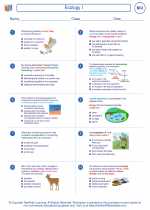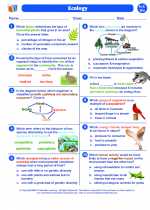Waterproof in Biology
Waterproofing in biology refers to the ability of certain organisms or biological structures to repel or prevent the penetration of water. This adaptation is crucial for the survival of many organisms, as it helps them maintain internal water balance, prevent dehydration, and protect vital organs and tissues from water damage.
Biological Structures with Waterproofing Adaptations
Several biological structures have evolved waterproofing adaptations to effectively manage water and protect the organism:
- Plant Cuticle: The outermost layer of plant leaves and stems is covered by a waxy cuticle, which acts as a waterproof barrier, preventing excessive water loss and protecting the plant from environmental stressors.
- Animal Fur and Feathers: Many mammals and birds have fur or feathers that are coated with natural oils, making them waterproof. This helps these animals stay dry and maintain insulation in wet environments.
- Insect Exoskeleton: Insects have an exoskeleton made of chitin, which is often covered with a waterproof layer to prevent water loss and protect against dehydration.
- Amphibian Skin: Amphibians such as frogs have skin that contains mucus and other substances to maintain waterproofing, allowing them to live in both aquatic and terrestrial environments.
Importance of Waterproofing in Biology
Waterproofing adaptations are critical for the survival and ecological success of many organisms. Here are some key reasons why waterproofing is important in biology:
- Preventing Dehydration: Waterproofing helps organisms retain water and prevent excessive loss, especially in arid or aquatic environments.
- Protection from Water Damage: Waterproofing shields vital biological structures from water-related damage, such as cell lysis or tissue decay.
- Regulation of Internal Water Balance: By repelling water, organisms can regulate their internal water balance and maintain physiological functions.
- Survival in Challenging Environments: Waterproofing adaptations enable organisms to thrive in diverse habitats, from deserts to rainforests to aquatic ecosystems.
Study Guide for Understanding Waterproofing in Biology
To gain a comprehensive understanding of waterproofing in biology, consider the following study guide:
- Research and understand the structure and function of the plant cuticle, including the role of waxes and cutin in waterproofing.
- Explore the different types of waterproofing adaptations in animals, such as fur, feathers, and specialized skin structures.
- Investigate the role of waterproofing in the life cycles and ecological niches of specific organisms, such as desert plants, aquatic insects, and amphibians.
- Examine the cellular and physiological mechanisms involved in maintaining waterproofing, including the role of lipid barriers and specialized cells.
- Consider the evolutionary implications of waterproofing adaptations and how they have contributed to the success of various species in diverse environments.
By delving into these topics and conducting further research, you can develop a thorough understanding of how waterproofing adaptations play a crucial role in the survival and ecological functioning of diverse organisms in the biological world.
.◂Biology Worksheets and Study Guides High School. Ecology I

 Worksheet/Answer key
Worksheet/Answer key
 Worksheet/Answer key
Worksheet/Answer key
 Worksheet/Answer key
Worksheet/Answer key
 Vocabulary/Answer key
Vocabulary/Answer key
 Vocabulary/Answer key
Vocabulary/Answer key
